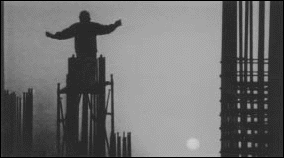|
|
|
監督:徐小明(シュー・シャオミン)
Director : Hsu Hsiao-ming |
1955年台湾生まれ。20歳で初めて映画を作る。台北の世界新聞専科学校にて、製作・監督・脚本を学びつつ、助監督業を開始。侯孝賢の『童年往事』、李行の『龍的傅人』『細雨春雨』など、数多くの作品に助監督として参加。1988年、パトリック・タム監督『雪在焼』で助監督を務めたのち、しばらく映画界を離れる。1992年、初の長編作品『天幻城市』(1991)をカンヌ映画祭監督週間に出品、続いて2作目の長編『去年冬天』(1994)も同映画祭にて上映される。 Born in Taiwan in 1995 and made his first film at the age of twenty. He then began to study production, direction, and scriptwriting at the World College of Journalism and Communications in Taipei. Later worked as an assistant director on numerous films, including Hou Hsiao-hsien's A Time to Live and a Time to Die and Lee Hsing's The Land of the Brave. After serving as assistant director on Patrick Tam's Burning Snow, left the industry for a while. His feature film debut, Dust of Angels (1991), was shown at the Director's Fortnight at Cannes, and his second feature, Heartbreak Island (1994), was presented at the same festival. |
 |
|
|
プロデューサーのことば 私は第1回山形国際ドキュメンタリー映画祭に参加しました。今でも鮮明に覚えているのは、小川紳介監督がアジアの映画作家たちの手を握り、アジアのドキュメンタリーのさらなる飛躍を祈ってくださった姿です。 私は小川監督を深く尊敬していました。彼の洞察と献身は常に私にインスピレーションを与えてくれました。長年にわたって私は、どちらかというと不毛な地のように見えるアジアのドキュメンタリー―ことに台湾の―が向上するために何かしたいと願ってきました。 ノンフィクション映画を製作するための資金を人々から引き出すためには8年を要しました。今回機会を得て、徐小明、アン・ホイ、スタンリー・クワンと共同で今年1年で3本のドキュメンタリーを製作しました。3作とも我々の社会における変わりゆく状況を扱っています。3作とも、極めて個人的な感覚をおびており、衛星やケーブルから溢れんばかりに提供されているルポルタージュとは一線を画しています。 『望郷』で徐小明は台湾で働く4人のアジア人労働者に焦点をあてています。フィリピン人の家政婦、タイ人の建設労働者、そしてより産業化が進んだ国々の新しい遊牧民たちです。徐は通常のニュース映画のスタイルから離れ、4人個々の望郷の念にかられた心の輪郭を描くことを選択しています。その結果感動的かつ現実的な作品となりました。 この映画を故・小川監督に捧げます。 |
Producer's Statement I was in Yamagata from the first Yamagata International Documentary Film Festival. Until this day, I remember distinctively how in this festival, Mr. Ogawa Shinsuke held all the Asian filmmakers' hands and hoped for a better tomorrow for Asian documentaries. I respected Mr. Ogawa immensely. His vision and dedication have
always been an inspiration to me. Over the years, I hope I can
do something to improve the somewhat barren land of Asian documentary--especially
in Taiwan. It took me eight years to persuade people to give me
money to do non-fiction films. When the opportunity came, I collaborated
with Hsu Hsiao-ming, Ann Hui and Stanley Kwan and finished three
documentaries this year. All three films are concerned with the
changing situation of our societies. All three bear strong personal
touches that are very different from the over-loaded reportage
that is the specialty of satellite and cable television. |
|
|
|
|
監督のことば 世界の労働市場が開放されるにつれて人の移動が以前よりも自由になってきました。より豊かな先進国への流入はもちろんのこと、発展途上国(台湾のような)にすら流入してきます。そのために外国人労働者や新移民の数は増加し、経済および社会にひろく影響をおよぼす現象となっています。外国人労働者たちはより高い収入を求めて祖国の地から自らを引き離し、そのために外国での雇用主による搾取に身をさらしているのです。一方では、例えばサービス業の分野でのように、多様な文化圏からやって来る労働者たちが新しい価値観や異質な価値観を持ち込むために、ホスト国側の当初の予想を越える問題が発生することが、ままあります。では、この現象の本当の代償は何でしょうか? このドキュメンタリーのための背景情報を収拾する段階からそれに実際の撮影中も、私たちは常に異文化間のギャップや価値観の相違から生じる問題や葛藤、そして悲劇の目撃者でした。自分の家族の生活水準をあげたいと願っていたのに実際には家族の崩壊の危険をおかした人々、またあるいは、愛する者をより愛そうとしていたのに実際には望郷の念との果てしない格闘をすることになってしまった人々…これらの人々の物語を記録しながら、我々は悲しみにくれました。この“発展”と呼ばれるものが、本当に人類の叡知を表しているのでしょうか…。 |
Director's Statement As the world's labor markets open up to allow a freer flow of people into the more affluent developed countries and even into developing countries (such as Taiwan), the growing number of foreign laborers and new immigrants has become a pervading phenomenon with both economic and social consequences. Foreign laborers tear themselves away from their native lands in search of higher incomes, and in doing so become vulnerable to exploitation by their foreign employers. On the other hand, in the service sector for example, laborers coming from diverse cultures bring with them new and different values, and this in itself often creates more problems than a host society can at first predict. So what then is the real cost of this phenomenon? In the process of collecting background information for this documentary and whilst shooting the footage, we were constantly witnesses to problems and conflict, even tragedy, arising from gaps between cultures and a divergence of values. It was with sadness that we recorded the stories of those who meant to improve the standard of living of their families but instead risked destroying their family unit; of those who meant only to give more love to those dear to them but who instead landed up in an endless struggle with homesickness. I wonder whether this so called 'evolution' really demonstrates the wisdom of our human race after all ... |
